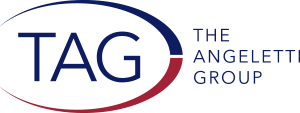As nonprofits work to recover from economic challenges and plan for stable futures, many have realized the importance of investing in the right fundraising professional to help sustain their mission well into the future.
Opportunities within the field of fundraising continue to grow; the U.S. Bureau of Labor Statistics predicts about 12,000 openings for fundraisers each year through 2030. And, like trends in the for-profit industry, candidates are more discerning than ever.
With all the chatter in the news lately about the “Great Resignation” and an ongoing war for talent, it might be tempting to be more flexible about the qualities of the ideal candidate. But in a competitive marketplace, it’s more important than ever to know how to spot a great fundraiser.
The right candidate must be an adept communicator, skilled fundraiser, and inspire confidence that he or she will serve as one of the organization’s biggest advocates.
Kate Hughes, a leader in TAG’s Executive Search Division, says that in addition to a resume, she asks candidates for examples of their fundraising successes.
“We want to peel away their skill set,” she explains. “This is a very personal job, one that requires a candidate to develop and maintain quality relationships with donors. We also look for someone who has longevity in prior roles and a proven track record.”
Suzanne Albin, Director of Client Partnerships who leads many of TAG’s searches, says that successful fundraisers need to also work closely with staff, volunteers, and current and prospective donors, so the ability to build relationships through good listening skills, the ability to motivate, and―perhaps most important―showing they care about people, are critical to their success.
“A successful fundraiser will have a good understanding and belief in the mission, vision and values of the organization they are raising funds for and be able to explain them to potential donors and external partners,” she says.
TAG’s Executive Search team shares key tips for uncovering true potential among development candidates:
Start looking in your own backyard. Your best candidates are usually found through networking with people you already know and their connections. Ask questions, be curious and understand that it’s not necessarily an easy or immediate process, especially in the current jobs climate. Reach out to your professional and personal connections, along with those you have on LinkedIn. See who else they are connected to―maybe they are a potential candidate or know of one. People almost always are willing to help if you approach them in an open and transparent way.
Uncover their passion. In this mission-driven field, it’s important for candidates to connect with your mission and be able to genuinely articulate it to donors and prospects. Ask questions about why the candidate is interested in the opportunity and what makes your organization stand out from others. Take note if the candidate has done research on the organization’s goals, impact, and success.
Hold a conversation. While a face-to-face meeting is always best, Zoom allows the opportunity to have a real conversation with a candidate and gain an understanding of how they may interact with donors and board members. Does the candidate have good communication skills? Are they relatable? Are they good listeners? Are they contributing to the conversation or simply providing short answers to questions?
Time-travel. Dig into their work history–has your candidate progressed in their career? Have they stayed in one place long enough to make a difference? While it’s less common than in the past for people to stay in one job for years, anything less than a year can be a red flag. That said, it’s worth discussing any job-hopping or gaps in employment to find out why. Was the job not a good fit? Was the candidate over- or under-qualified? How might that translate into the current role for which they’re applying?
Finally, remember the basics. Things like professional dress and demeanor, common courtesy (such as a candidate calling if they will be late or sending a thank you note), and basic communication skills are all critical interpersonal skills for any job but especially important in the relationship-building world of fundraising.
Simply put, fundraisers have a huge role to play in an organization’s success. Investing the time to find the right fit may take a bit more on the front end, but will lead to long-lasting donor relationships and greater donations.


